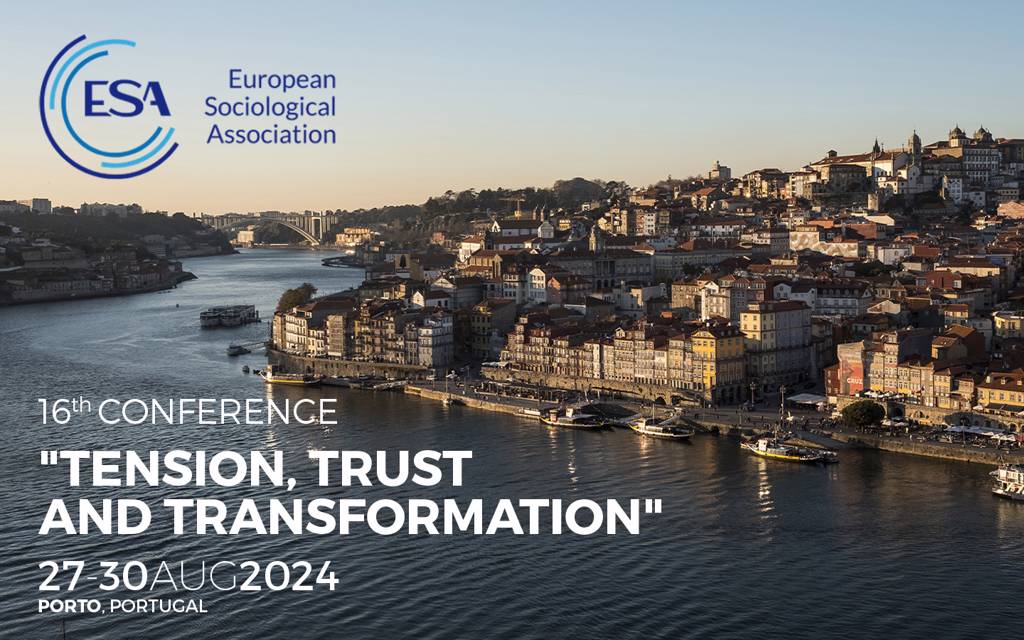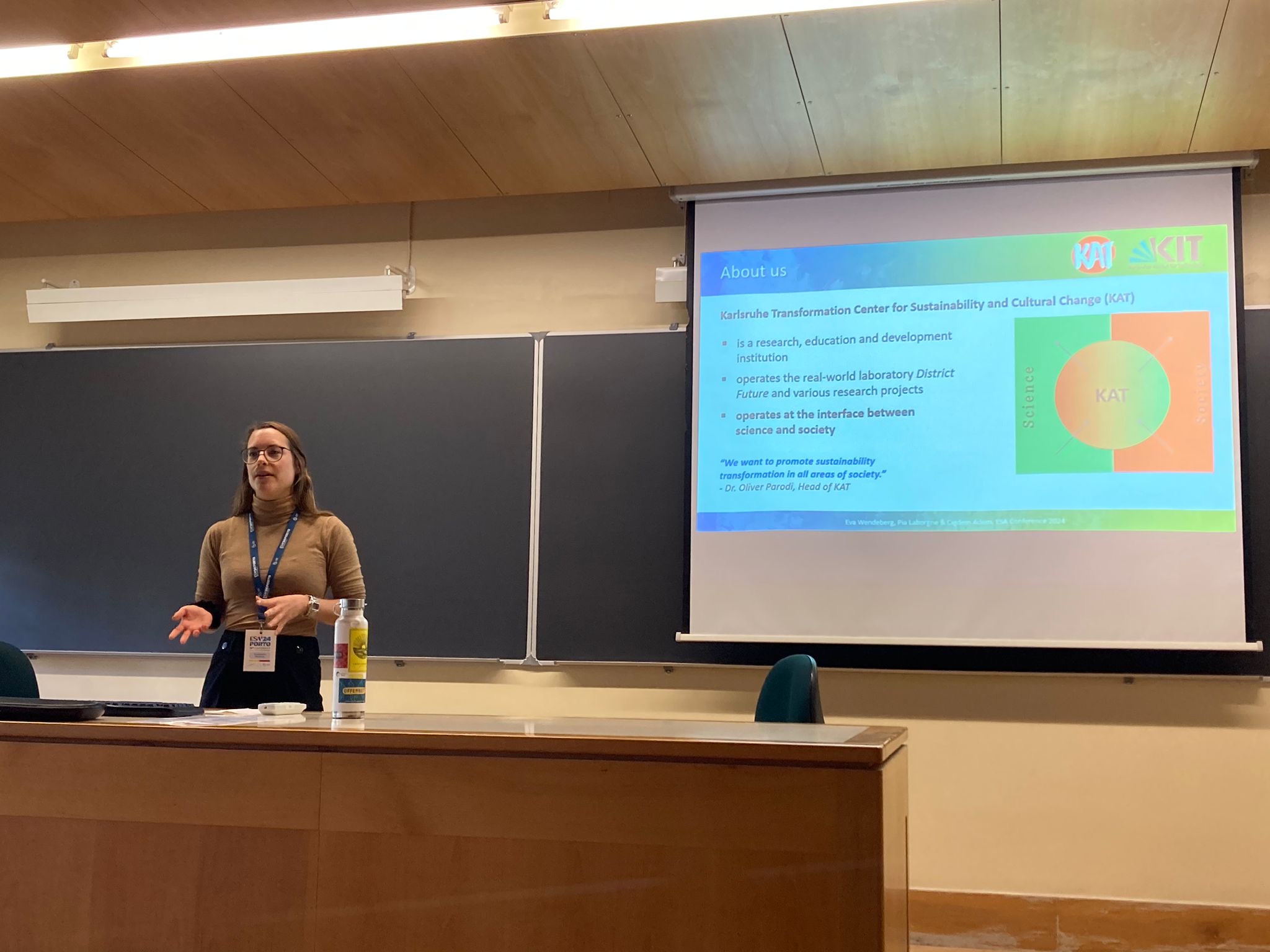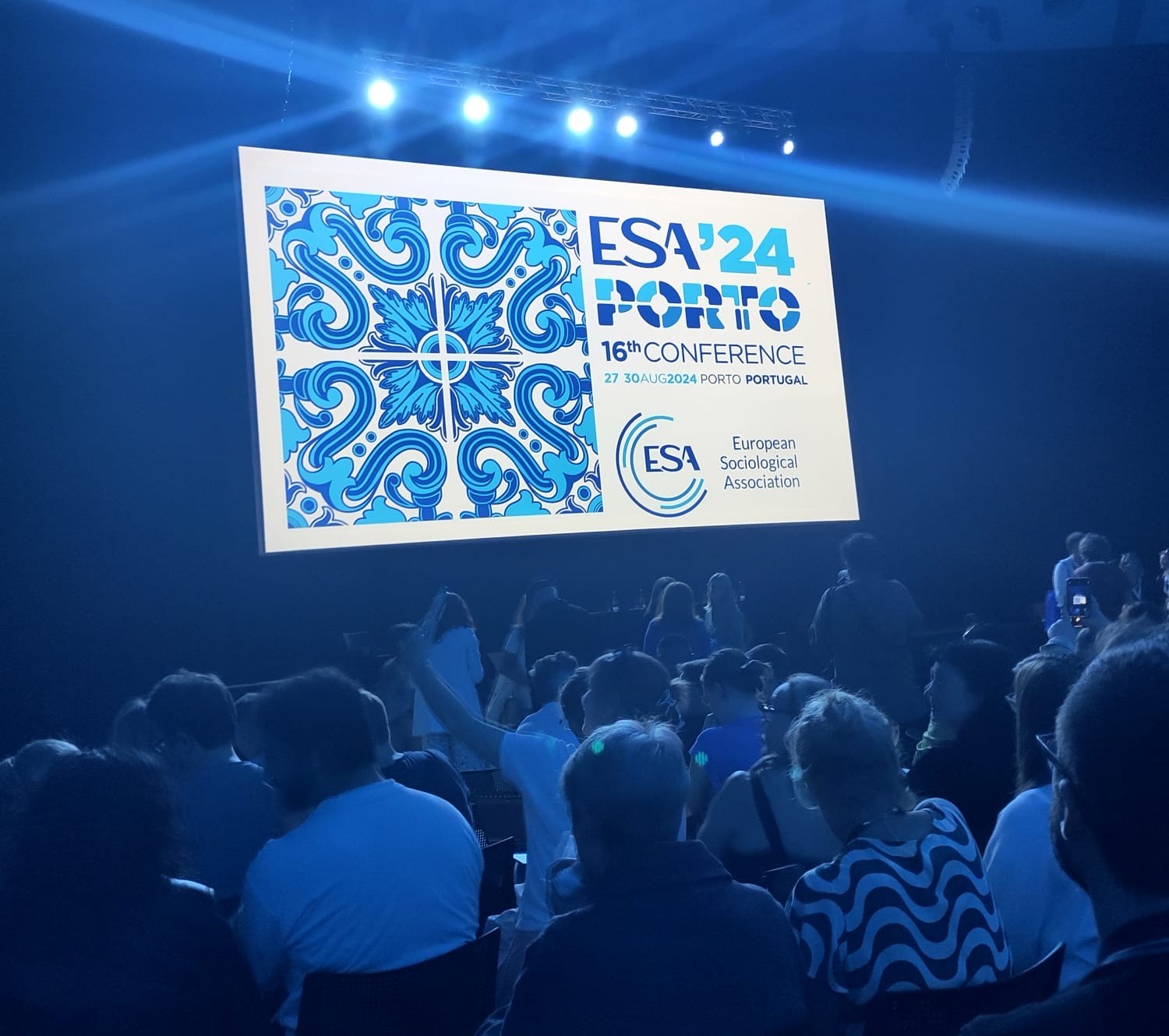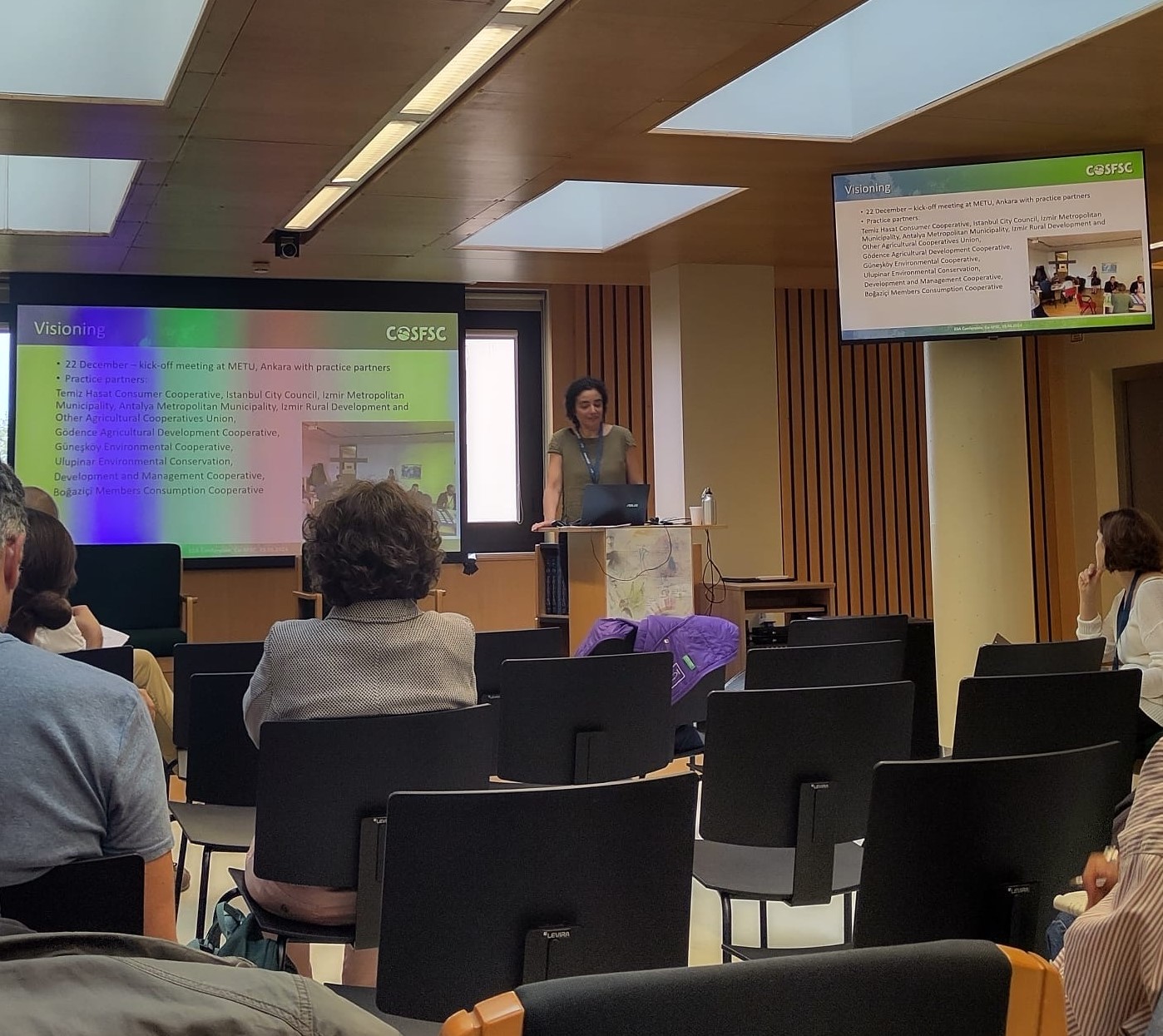Co-SFSC participated at the ESA conference
European Sociological Association conference 2024

Every two years since 1992, the European Sociological Association (ESA) has organized a big conference in various European countries. This year, from August 27 to 30, over 3800 participants from all over the world attended the 16th conference. The theme this year, "Tension, Trust, and Transformation," aims to reflect the challenges and experiences of recent times, including global crises such as the Covid-19 pandemic, climate change debates and activism, inequalities, violence, the persistence of populism, and political instability.
Tension: Societies are increasingly strained by rising nationalism, deepening inequalities, and new conflicts fueled by cultural, political, and technological divides.
Trust: Trust in institutions and key individuals such as scientists and politicians can be seen as being closely associated with stable and robust systems. However, trust is eroding as populism, conspiracy theories, and governance challenges undermine the stability of democratic societies.
Transformation: Sociological research is increasingly focused on driving impactful change, shaping society through diverse theoretical and methodological approaches aimed at positive transformation.
Two members of the Co-SFSC research team (Eva Wendeberg and Cigdem Adem) participated presenting Co-SFSC with the focus on how transdisciplinary and transformative research can support the transition to sustainable food supply chains.

Cigdem presented about traditional ecological and agricultural knowledge that is integrated into the sustainability assessment framework of the project through food culture (knowledge, skills and practices) and through (heritage) seeds. The role of traditional ecological knowledge is increasingly recognized for its potential for effective environmental governance. However, tensions remain when it comes to creating meaningful spaces for engaging with this knowledge and its bearers, with long-standing trust issues complicating the process.


